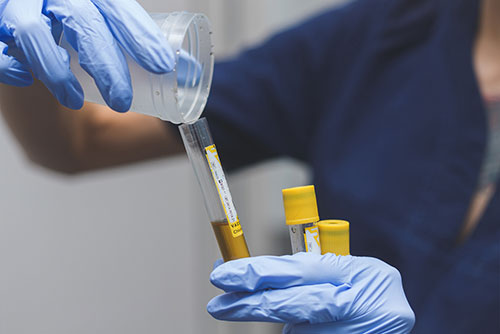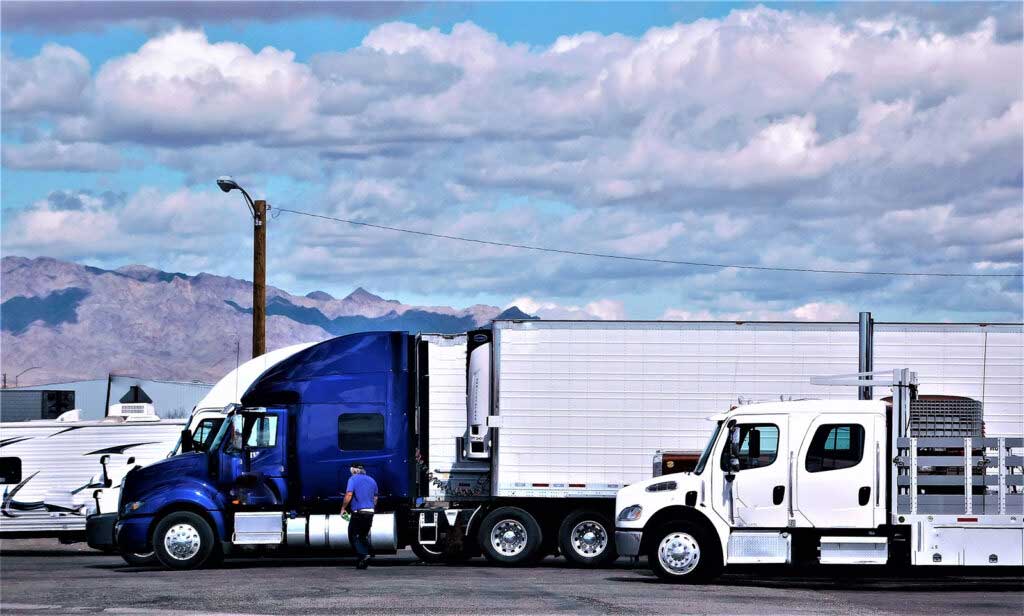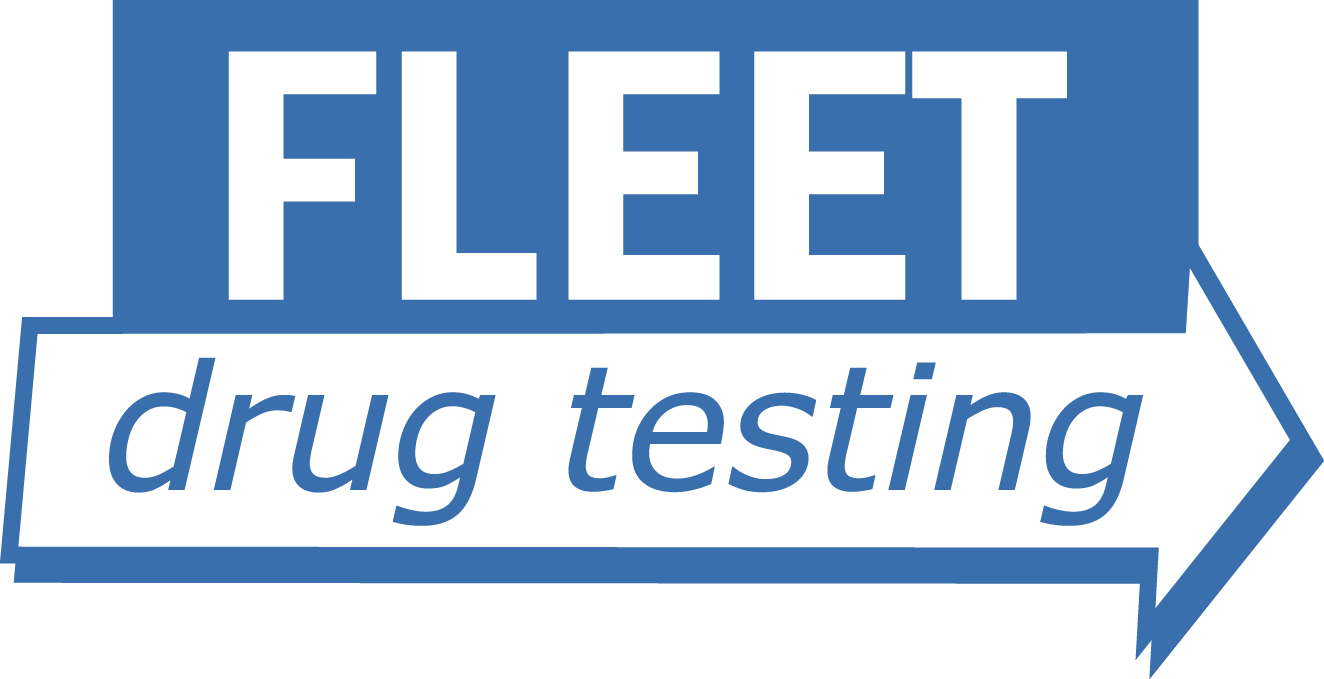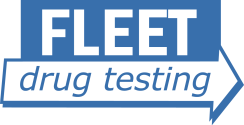Fleet FMCSA Drug Testing
Simple. Safe.
DOT-Compliant
DOT-Compliant Drug & Alcohol Testing, Consortium and Clearinghouse:
DOT Drug Testing Locations in Tennessee Near You
Your One-Stop Solution for:
ENROLL in our DOT FMCSA testing program to assure compliance.
No matter where you are, there’s a testing location nearby ready to serve you.

DOT Compliant Drug and Alcohol Testing Services for CDL Drivers
Whether you’ve just obtained your CDL license or are an employer with new drivers, you must comply with DOT/FMCSA Drug and Alcohol Testing rules and regulations
Owner-operators or “for hire” CDL license holders are required to undergo testing through a Third-Party Administrator (C/TPA) such as Fleet Drug Testing before driving a commercial vehicle. They are not permitted to manage testing themselves.
At Fleet Drug Testing we manage everything for you. Simply enroll into our FMCSA drug & alcohol testing consortium and we will ensure your DOT testing requirements are fulfilled in a cost-effective manner.

FMCSA Drug Testing Requirements for Owner-Operator ("For Hire") CDL Drivers
If you’ve just obtained your CDL license and intend to work as a “for hire” driver, you must undergo pre-employment testing before operating a commercial vehicle.
FMCSA regulations also require you to enroll in a drug and alcohol testing consortium and participate in its random testing pool.
Meeting these requirements is as simple as joining our testing program. We offer enrollment into a consortium which simplifies the compliance process by providing pre-employment testing, random testing and more. This ensures that all FMCSA testing requirements are met in a cost-effective and efficient manner.

FMCSA Drug Testing Requirements for Employers
As per the FMCSA, CDL employers are required to implement a drug and alcohol testing program for their drivers. This includes conducting pre-employment, random, post-accident, reasonable suspicion, return-to-duty, and follow-up testing.
Employers are also required to provide educational materials and training on drug and alcohol misuse for drivers. Records of the testing program must be maintained and made available to the FMCSA upon request.
We offer comprehensive services to help trucking and other CDL employers fulfill these FMCSA requirements. From random testing selection, sample collection, testing, record keeping, and reporting we ensure compliance in a cost-effective and efficient manner.
Enroll Now. DOT Compliant Drug & Alcohol Testing Consortium Prices
DOT COMPLIANT
ENROLLMENT-
Certificate of Enrollment
-
Online Access to Your Account
-
Medical Review
-
Nationwide Collection Sites
Additional Drivers ($10 each)
Pre-Employment Drug Testing ($60 each)
DOT COMPLIANT
ENROLLMENT & TESTING-
Certificate of Enrollment
-
Online Access to Your Account
-
Medical Review
-
Nationwide Collection Sites
-
Pre-Employment Drug Test
-
Random Drug Testing
Add Additional Drivers ($100 each)
ONLINE
SUPERVISOR TRAINING-
Supervisor Role Training
-
Alcohol & Drug Test Training
-
Training Certificate
Questions? Give us a call at (888) 709-5029, M-F 8am to 5pm (PDT)
We Provide and Manage All Federally Mandated Testing Requirements:

Pre-Employment Drug Testing

Random Drug and Alcohol Testing

Post-accident Drug and Alcohol Testing

Reasonable Suspicion Drug and Alcohol Testing

Return-to-Duty Drug and Alcohol Testing

Follow-up Drug and Alcohol Testing

Stay Compliant the Easy Way
As any trucking company, commercial driving company or owner-operator is subject to DOT regulations, participating in our DOT drug & alcohol testing consortium can provide you with several benefits, such as:
- Simplify the drug testing process – Our drug testing consortium can handle all aspects of the drug testing process, including specimen collection, laboratory testing, and result reporting. This can simplify the process for owner-operators and ensure compliance with DOT regulations.
- Reduce costs – By pooling resources with other companies and owner-operators, consortium members can benefit from reduced drug testing costs. Our consortium can also negotiate lower rates with testing facilities and pass those savings on to our members.
- Ensure compliance – Probably the biggest benefit to our drug testing consortium is that it can help ensure compliance with all DOT drug and alcohol testing regulations. This can include providing guidance on testing frequency, ensuring proper specimen collection procedures, and maintaining accurate records. All of these are vital for single-vehicle owner-operators.
- Provide expert support – The staff of our drug & alcohol testing consortium can provide expert support and guidance on all aspects of the drug testing process. This can include answering questions about testing requirements, providing training on drug and alcohol testing procedures, and helping owner-operators navigate any compliance issues.
- Increase accountability – Our consortium members are held accountable for complying with DOT drug and alcohol testing regulations. This can help ensure a level playing field for all owner-operators and reduce the risk of non-compliance.
Get DOT Compliance Drug Testing
Fill out this form and a member of our team will reach out shortly.
"*" indicates required fields
Why Does the DOT Have a Drug Testing Program?
For safety reasons, the Department of Transportation (DOT) makes it mandatory for employees in certain safety-sensitive roles, like commercial drivers, to undergo drug testing. This ensures that they are not under the influence while carrying out their job responsibilities. The reason behind drug testing is to identify drivers and employees who might be using illegal drugs or misusing prescription medications, which could impair their ability to work safely. Additionally, alcohol testing is required because alcohol is a major cause of impairment and is often misused by individuals in safety-sensitive positions. The main goal of the DOT in implementing these tests is to minimize the risk of accidents and promote a safer work environment.Procedures in Tennessee
The DOT’s drug testing program goes beyond mere testing; it implements stringent measures to guarantee precise and consistent outcomes. This approach assures employees and their companies of professional and compliant testing services. Let’s take a closer look at the DOT’s drug testing procedure, which applies everywhere in Tennessee:- Notification – Employees are informed about the requirement for drug testing and what it involves.
- Collection – Trained collectors gather a urine or saliva sample from the employee using proper procedures.
- Split specimen – The collected sample is divided into two containers (A and B), sealed in front of the employee, creating two separate samples for testing.
- Sample testing – The sample is sent to a certified laboratory approved by the DHHR and NLCP, where tests are conducted to detect any drugs or alcohol in the sample.
- Review by a Medical Review Officer (MRO) – The test results are provided to an MRO who reviews them. If needed, the MRO contacts the employee for clarification or if any concerns arise.
- Reporting – The MRO informs the employer about the test results.
When Does a Tennessee Employee Have to Be Drug Tested?
If you’re a safety-sensitive employee in one of the transportation industries in Tennessee, you are subject to the DOT’s drug testing program. But that’s only one part of the equation. The other part is knowing when you’ll be drug tested. According to DOT guidelines, Tennessee employees are drug tested at the following intervals:- Pre-employment testing – Prospective employees must pass a drug and alcohol test before being hired for a safety-sensitive job.
- Random testing – Employers randomly select employees for drug and alcohol testing. At least 50% of employees should undergo drug testing, and at least 10% should undergo alcohol testing within a year.
- Reasonable suspicion testing – If there is a valid reason to suspect that an employee is under the influence, they must undergo testing as required by the DOT.
- Post-accident testing – After workplace accidents resulting in death, serious injury, or property damage, the involved employee must be tested for drugs and alcohol.
- Return-to-duty testing – If an employee tests positive, they must complete substance abuse treatment and pass a test before returning to their safety-sensitive job.
- Follow-up testing – Employees who tested positive and have returned to work must undergo regular follow-up testing.
Why Compliance with the DOT Testing Program is Important in Tennessee
In Tennessee, just like in other areas, ensuring compliance with the DOT’s testing program holds paramount significance for your business. It entails not only substantial financial implications but also various other compelling reasons:- Ensuring public safety – The main goal of the DOT’s program is to uphold public safety by preventing accidents caused by individuals impaired due to drugs or alcohol. Those in safety-sensitive roles hold the responsibility of protecting the public, and any substance-related impairment poses a significant risk.
- Compliance with regulations – The program operates under a regulatory framework, and failure to adhere to its rules can result in substantial fines and legal consequences for employers. It is vital to follow the program’s guidelines to avoid legal liabilities and preserve your company’s reputation.
- Employee well-being – Employees in safety-sensitive positions could be exposed to potential harm or even fatal accidents if their colleagues are impaired by drugs or alcohol. By complying with the program, your company places a high priority on the safety and protection of its employees, reducing risks and fostering a secure work environment.
- Promoting employee health – Substance abuse can severely impact the physical and mental well-being of your employees. By identifying and addressing substance abuse issues, you can support your employees in overcoming addiction, improving their health, and enhancing their overall well-being.

